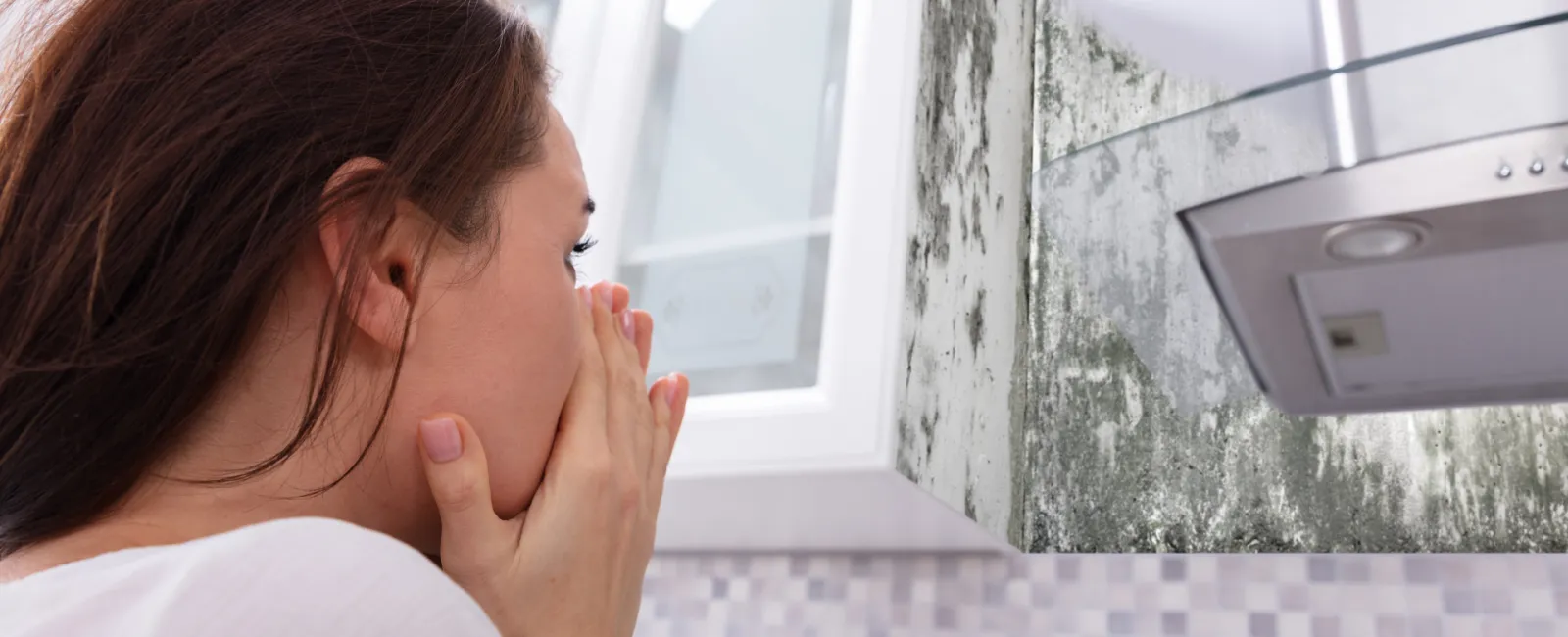A musty smell in your house can be frustrating and even concerning. Whether it's a persistent mildew smell in the house, a sudden sour odor, or an old house smell that won't go away, identifying the cause is key. Many homeowners wonder, "Why does my house smell musty all of a sudden?" The answer often lies in excess moisture, poor ventilation, or hidden mold growth. If your home has a persistent musty smell, here's what you need to know about potential causes and how to get rid of the musty smell in your house.
What Does a Musty Smell Mean?
If you've ever walked into a damp basement or opened an old book, you're familiar with the musty smell meaning. Some describe it as earthy, like wet wood, while others say it's closer to dirty socks or a sour smell in the house. In many cases, the musty odor is a sign of excess humidity or mold growth.
But does mold smell? The answer is yes. Mold and mildew release microbial volatile organic compounds (MVOCs), which produce musty, stale odors. While not all musty smells mean mold is present, persistent odors could indicate hidden growth behind walls, beneath flooring, or inside HVAC systems.
Common Sources of Musty Odors in the Home
High Humidity and Poor Ventilation
Humid environments encourage mold and mildew growth, particularly in rooms with poor airflow. Bathrooms, basements, attics, and laundry rooms are especially prone to developing a mildew smell. Opening windows and using exhaust fans can help, but persistent issues may require further investigation.-
Mold and Mildew Growth
Mold and mildew thrive in damp conditions, releasing a distinct musty odor. Common hiding spots include behind wallpaper, under carpets, inside walls, and around plumbing fixtures. If you notice a musty smell but no visible mold, professional air quality testing may be necessary. -
Damp Carpets and Upholstery
Spills, leaks, and excess humidity can lead to moisture buildup in carpets, curtains, and furniture. Once moisture is trapped, mildew and bacteria thrive, producing persistent musty odors. -
HVAC Systems and Air Ducts
Dirty or clogged air filters can circulate odors throughout your home. Moisture buildup in HVAC units can lead to mold growth inside the system. Regular HVAC maintenance and duct cleaning can help prevent and eliminate musty smells. -
Water Leaks and Hidden Moisture
A small leak behind walls or beneath flooring can create the perfect conditions for mold. Signs of water damage, such as peeling paint, bubbling wallpaper, or warped flooring, should not be ignored. If your house smells musty but no mold is visible, a moisture inspection is a good next step.
What Does a Musty Smell Mean? How to Get Rid of Musty Smells in the House
Getting rid of a musty smell in your home requires a combination of fresh air, deep cleaning, and moisture control. Follow these steps to eliminate odors and keep your home smelling fresh.
-
Improve Air Circulation -Open windows and doors to let in fresh air. Use fans and dehumidifiers to reduce moisture and prevent musty smells from settling.
-
Deep Clean Problem Areas - Scrub mold-prone surfaces with a white vinegar and water solution. Regularly wash curtains, cushions, and rugs to remove lingering odors.
-
Address Moisture Issues - Repair leaks and seal cracks in walls, windows, and foundations to prevent hidden moisture buildup. If high humidity is a recurring issue, consider investing in a whole-home dehumidifier.
-
Clean and Replace Air Filters - Change HVAC filters every 1-3 months to stop musty odors from circulating. If the smell persists, professional air duct cleaning may be necessary.
-
Use Natural Odor Absorbers - Place bowls of baking soda or activated charcoal around your home to absorb unwanted smells. Houseplants like peace lilies and snake plants can also help purify indoor air.
When to Call a Professional
Sometimes, despite your best efforts, musty odors linger. If you're struggling with how to get rid of mildew smell in the house, it might be time to call an expert.
Signs You Need Professional Help:
The musty smell returns quickly after cleaning.
You experience unexplained allergy symptoms, headaches, or respiratory issues.
You suspect hidden mold but can't find the source.
Water damage or leaks are present but unresolved.
Who to Call to Identify a Smell in the House? RooterPLUS Water Clean Up offers expert solutions for identifying and eliminating musty odors in your home. Our team can perform a thorough inspection, test indoor air quality, and provide professional mold remediation and services.
Schedule an Appointment Today
A musty smell in your house doesn't have to be permanent. If DIY solutions aren't enough, RooterPLUS Water Clean Up is here to help. We specialize in moisture control, air quality improvements, and mold remediation to keep your home fresh and odor-free.
Don't wait until musty smells turn into bigger problems. Schedule an appointment with RooterPLUS Water Clean Up today and breathe easier knowing your home is in expert hands.
